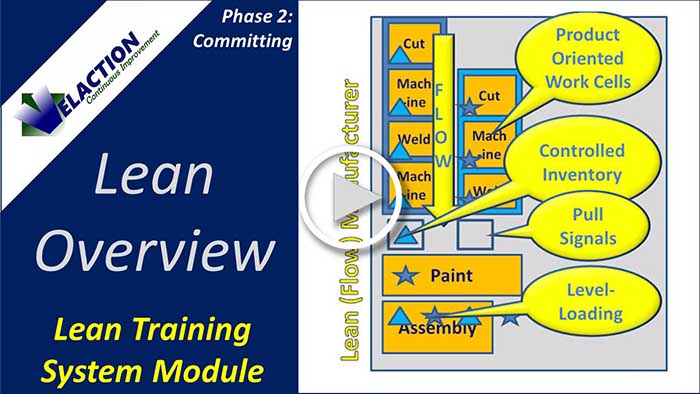Lean
In its original definition, Lean is a form of continuous improvement that springs from the Toyota Production System (TPS). The term “Lean” was popularized in the landmark book, Lean Thinking. It focuses on improving flow, with a heavy emphasis on reducing inventory.
Nowadays, though, there is also a broader definition. Lean has come to mean any effort to do more with less. For some, it has even become interchangeable with the terms “waste reduction”, “continuous improvement”, or “process improvement”.
Originally, Lean was used almost exclusively in manufacturing. Now you will find far more widespread applications.
Examples of Lean applications:
- Lean Manufacturing (often called Lean Production)
- Lean Office
- Lean Accounting
- Lean Healthcare
- Lean Service
- Small Business Lean
And those are just the big ones. It is pushing into retail, job shops, restaurants—everywhere. In effect, each of these new versions is just a tailored form of the original, repackaged to fit the specific needs of the function. The definition of Lean is constantly being rewritten.
There is even a variation of Lean called Lean Six Sigma. It combines aspects of both Lean and Six Sigma into one set of tools.
Learning Lean can be especially tricky because there is no single authority that controls it. Think of it like “management” or “human resources”. “Lean” as a term is widely used but applied pretty much as the individual sees fit—with varying degrees of success. There are some big players in the Lean world, of course. The current powerhouse in defining Lean is the Lean Enterprise Institute, a non-profit organization. The Society of Manufacturing Engineers also has a strong voice in adding to the definition of Lean. (Velaction Continuous Improvement also has a large internet presence in our website and video platforms.)
Some of the most important Lean tools are:
![]()
The following books are good starter books to learn more about the definition of Lean and how to apply it.
Whaddaya Mean? (my book) is focused on how to get companies and teams to partner up in getting more out of Lean for both groups, and how people can thrive in less-than-perfect Lean environments. Lean Thinking is one of the earliest books on Lean, and went a long way in setting its current definition. Lean for Dummies is a good book for understanding the principles of Lean. The Toyota Way is the most well-known book on the Toyota Production System.



0 Comments